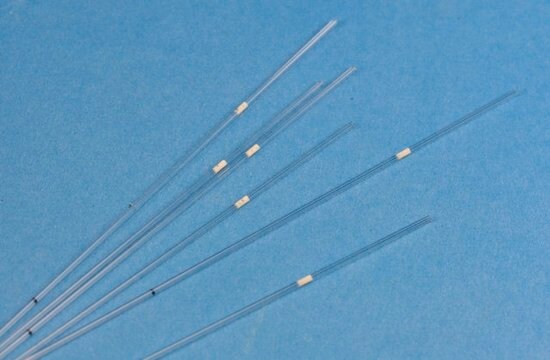Y0001079
Benserazide for peak identification
European Pharmacopoeia (EP) Reference Standard
Sinonimo/i:
Benserazide hydrochloride, DL-Serine 2-(2,3,4-trihydroxybenzyl)hydrazide hydrochloride
About This Item
Prodotti consigliati
Grado
pharmaceutical primary standard
Produttore/marchio commerciale
EDQM
applicazioni
pharmaceutical (small molecule)
Formato
neat
Temperatura di conservazione
2-8°C
Stringa SMILE
Cl.NC(CO)C(=O)NNCc1ccc(O)c(O)c1O
InChI
1S/C10H15N3O5.ClH/c11-6(4-14)10(18)13-12-3-5-1-2-7(15)9(17)8(5)16;/h1-2,6,12,14-17H,3-4,11H2,(H,13,18);1H
ULFCBIUXQQYDEI-UHFFFAOYSA-N
Informazioni sul gene
human ... DDC(1644)
Cerchi prodotti simili? Visita Guida al confronto tra prodotti
Descrizione generale
Applicazioni
Azioni biochim/fisiol
Confezionamento
Altre note
Avvertenze
Warning
Indicazioni di pericolo
Consigli di prudenza
Classi di pericolo
Eye Irrit. 2 - Skin Irrit. 2 - STOT SE 3
Organi bersaglio
Respiratory system
Codice della classe di stoccaggio
13 - Non Combustible Solids
Classe di pericolosità dell'acqua (WGK)
WGK 2
Punto d’infiammabilità (°F)
Not applicable
Punto d’infiammabilità (°C)
Not applicable
Scegli una delle versioni più recenti:
Certificati d'analisi (COA)
It looks like we've run into a problem, but you can still download Certificates of Analysis from our Documenti section.
Se ti serve aiuto, non esitare a contattarci Servizio Clienti
Possiedi già questo prodotto?
I documenti relativi ai prodotti acquistati recentemente sono disponibili nell’Archivio dei documenti.
Il team dei nostri ricercatori vanta grande esperienza in tutte le aree della ricerca quali Life Science, scienza dei materiali, sintesi chimica, cromatografia, discipline analitiche, ecc..
Contatta l'Assistenza Tecnica.




